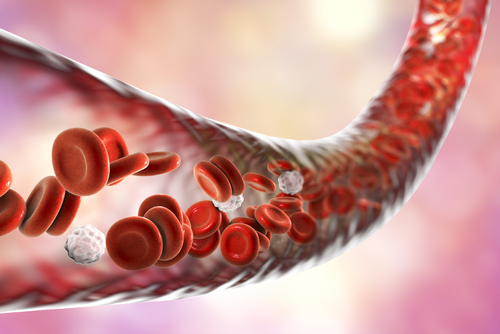Direct Oral Anticoagulants Show Promising Results for CTEPH Treatment in Small Study
Written by |

Direct oral anticoagulants — a type of blood thinner medication — are a safe and effective treatment for chronic thromboembolic pulmonary hypertension (CTEPH), according to a small study.
The study, “Use of direct oral anticoagulants for chronic thromboembolic pulmonary hypertension,” was published in the journal Clinics.
CTEPH, a rare form of pulmonary hypertension, is caused by blood clots that travel to the lungs and obstruct the lungs’ blood vessels, namely the pulmonary arteries. This causes a localized increase in blood pressure, making the heart work harder to pump blood — which can weaken the heart muscles — and may lead to the formation of scar tissue that can partially or completely block the arteries.
Medical treatment for CTEPH begins with effective and lifelong therapy with anticoagulants, or anti-clotting, agents. Oral vitamin K antagonists are mainly used for this purpose, but they have some limitations, such as the continuous need for monitoring and several interactions with medications and food.
Recently, four new direct oral anticoagulants — dabigatran (sold under the brand names Pradaxa and Prazaxa, among others), rivaroxaban (brand name Xarelto, among others), apixaban (brand name Eliquis), and edoxaban (brand names Savaysa and Lixiana) — were shown to have a number of advantages over the use of vitamin K antagonists in several conditions associated with blood clots.
Contrary to vitamin K antagonists, these new medications do not require regular blood monitoring and are not affected by food or alcohol. In addition, clinical trials showed that they are at least as effective, and possibly safer, than vitamin K antagonists in controlling conditions associated with lung blood clots.
However, the benefits of direct oral anticoagulants in CTEPH remain unclear.
To study this, a team of researchers evaluated the safety and effectiveness of these new direct oral anticoagulants in 20 individuals with CTEPH, including eight men and 12 women. The patients’ mean age was 51 years, and eight patients were markedly or severely limited by the disease.
They began treatment with direct oral anticoagulants between June 2015 and November 2016, with 16 of them receiving rivaroxaban, three receiving dabigatran, and one receiving apixaban. They were followed for a median of 20.9 months.
No episode of blood flow blockage was identified during the follow-up period, suggesting that the three therapies are effective in the treatment of CTEPH.
As with all anticoagulants, bleeding — either spontaneous or provoked — is the most common (and feared) complication. In this group of patients, a major bleeding episode after a traumatic fall occurred and resulted in the patient’s death.
Eight patients received direct oral anticoagulants before and after pulmonary endarterectomy — a surgical procedure that removes clots and scar tissue from the pulmonary arteries — which did not interfere with surgery or the postoperative follow-up period.
The researchers concluded that “direct oral anticoagulants appear to be a safe and effective alternative for treating chronic thromboembolic pulmonary hypertension,” although they emphasized that randomized, multicenter clinical trials are needed to confirm these results.



